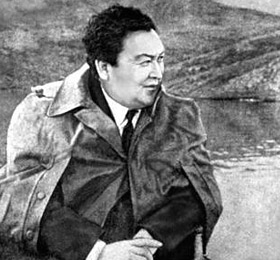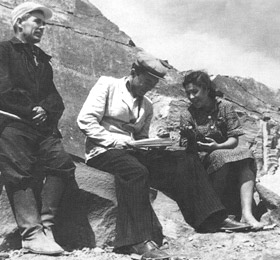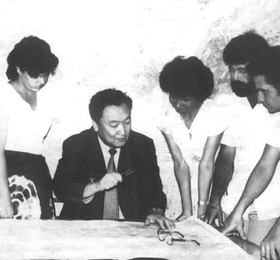WHAT DID THE MAKEBLOCK INTERNSHIP TEACH?
In June and July, the three winners of the Shakhmardan Yessenov Foundation’s “Internships in China’s Innovative Enterprises” grant worked at Makeblock, a robotics startup in Shenzhen. Our interns – Dinsultan Absattar, Olzhas Adiyatov and Azamat Tikenov – share their experience with us.
They were able to participate in the implementation of six projects during the internship. Some of these included a robotic platform with manipulator, a hexapod robot (it uses six limbs to move) and a gyro stabilized robot. Our grantees worked on the electronics of a quadrocopter and the Rubik’s cube solving robot.
Alice Zhang, the co-founder of Makeblock gave a positive feedback regarding the professional qualities of the Kazakhstan interns: “Guys diligently mastered new knowledge; they are undeniably talented and were quick at grasping information.” Azamat Tikenov found the time not long enough, saying that “..one month for these kind of internships is not enough. It would be ideal to have 3-month internships”. Elzira Aldagarova, the program’s coordinator at the Foundation told us that the non-profit organization will take into account the first experience in China: “Obtaining a-three-month Chinese visa was quite a challenge, you know. And it would have taken too should we opted for it. So we had to go for a month-long visa instead even though it meant much shorter internship. One of the other conclusions we made was that we will be starting the negotiations for the 2017 internships this autumn instead of the next spring. In addition to that, interns will determine the projects they will work on before the start of the internship itself, so that precious time in China would not be spent on that. This has to do with the nuances of doing business in China, and for the successful implementation of our plans we need to consider the local mentality and traditions.”
This July Olzhas Adiyatov enrolled to the Master of Science in Robotics post graduate program at the Nazarbayev University. “Overall, the internship was successful. I will be able to implement some of the knowledge I received in China back at the Nazarbayev University’s laboratory and I plan to continue my research in the field of trajectory planning and movement. This internship at Makeblock gave me the understanding that it’s not the uniqueness of the idea that is important but finding the ways of its implementation, marketing,” – Olzhas shared with us.
Dinsultan Absattar adds to what Olzhas said: “Most of the Chinese know English, but not all of them actually speaks it. And it hindered the learning process, as well as the fact that the Chinese government blocks all the Google services and other resources. Overall, the internship was a great source of additional knowledge the thesis I’m working on, and I even plan to make serious changes to one of my latest school projects. Having studied the work at Makeblock as a company, I learnt a great deal about the kind of specialist I need to become and how I should move forward professionally. My summer in China was also a proof of that the language of science is still English. In addition to the technical documentation and tutorials, which helped to survive in the Chinese environment, English simplified travelling around the city (for subway and buses stations are in English there). So I had another incentive to improve my English language skills”.
To remind, this spring the Shakhmardan Yessenov Foundation selected the winners of the “Internships in China’s Innovative Enterprises” program: Suleyman Demirel University student Dinsultan Absattar and its teaching staff member Azamat Tikenov and a graduate of the Nazarbayev University Olzhas Adiyatov.
Makeblock is a robotics startup located in Shenzhen, China. In 2013, only 10 people made up a team, but today the company employs over 120 professionals. The company is a platform for creating DIY (do-it-yourself) robots and cooperates with the Arduino and Microsoft. The startup has managed to attract investments in the amount of $150 million and has distributing offices in 40 countries around the world.
8.08.16, Newsfeed
Seen by: 523





